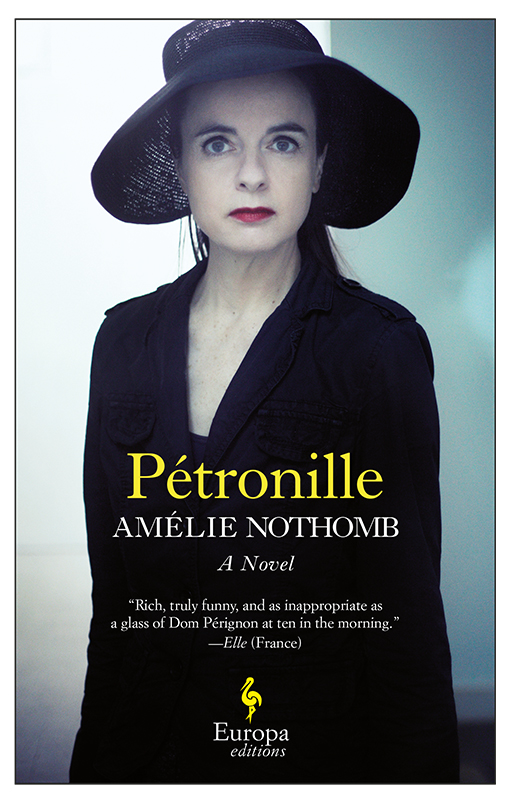
Pétronille
کتاب های مرتبط
- اطلاعات
- نقد و بررسی
- دیدگاه کاربران
نقد و بررسی

August 24, 2015
“Intoxication doesn’t just happen. It’s an art,” Nothomb (Hygiene and the Assassin) writes in her latest novel, dripping with champagne and mischief. The protagonist,
Nothomb, is a bibulous author in search of a “comvinion” (a drinking companion) and ends up with fan Pétronille, of whom which she had already a long epistolary relationship. Upon meeting Pétronille, Amélie is bewildered by her youthful, boyish appearance and even more by her audacious and impish nature—yet still, she is certain she has found the “Chosen One” to drink with. The women drink themselves into oblivion at the Ritz, in cafes, and while skiing. Pétronille follows in Amélie’s footsteps and finds herself succeeding as an author but still cannot seem to pay the bills. Consequently, she agrees to work as a pharmaceutical test patient, which inevitably fractures the little peace of mind she has. Amélie becomes embittered by Pétronille’s obstinate and erratic nature, yet she refuses to let Pétronille destroy herself.
Nothomb’s novel is full of energy.

August 1, 2015
In the tradition of novels about intense, artistic female friendships, Nothomb's light-hearted latest features flamboyant characters and copious drinking of champagne. Nothomb (Hygiene and the Assassin, 2010, etc.) has published more than 20 other novels, which is startling because this one reads like a fledgling effort. The writing feels cursory, and the story doesn't acquire even the depth needed to be a good farce. The novel (or novella-it's only 128 pages) is narrated by a writer, also named Amelie Nothomb, with a devotion to drinking bubbly. There's a pleasant description of her introduction to it-"I looked into the darkest place and I saw, and heard, jewels. Their multiple fragments tinkled with precious gems, with gold and silver"-but after that poetic start, Nothomb's lyricism seems exhausted. At a reading, the narrator is approached by Petronille, a sexually ambiguous waif who greatly intrigues her. When she deduces that Petronille likes to drink, the two quickly develop a friendship, with the older Amelie both revered and mocked by her irreverent wild-child friend. This is a promising setup but nothing interesting-little conflict, seemingly no intimacy-develops between them. And Nothomb's flat writing doesn't create any buoyancy for her story. For instance, Amelie goes to London to interview the fashion designer Vivienne Westwood and, after an unhappy experience with her, invites Petronille to join her. The women visit the British Museum, and Nothomb writes: "We agreed to meet in Mesopotamia at noon. It's not every day you can schedule a meeting in such a place." The second sentence dulls the lightness of the first and is characteristic of a novel that seems to state the obvious at every turn. From a skiing trip in the Alps to a crisis where Petronille resents her own status as a minor author, nothing is rendered with either enough wit or depth to be entertaining. It's puzzling what Nothomb's purpose was with this novel, but it feels like such a hasty job that one isn't tempted to spend much time figuring it out.
COPYRIGHT(2015) Kirkus Reviews, ALL RIGHTS RESERVED.

September 15, 2015
In this razor-sharp fable by award-winning French author Nothomb (Life Form), an author named Amelie Nothomb with a passion for champagne finds a comvinion--that is, a drinking companion--in a fan named Petronille. There's something altogether odd (and, intentionally or not, sometimes not quite real) about their relationship, and as Amelie encourages Petronille's obvious writing talent, the story gets darker and more bizarre. VERDICT Not for your average women's fiction fan but wonderfully disturbing stuff for the more serious-minded; the end is an absurdist shocker readers will embrace or deplore.
Copyright 2015 Library Journal, LLC Used with permission.

























دیدگاه کاربران